Symposium 2019 (October): Governing Wicked Problems
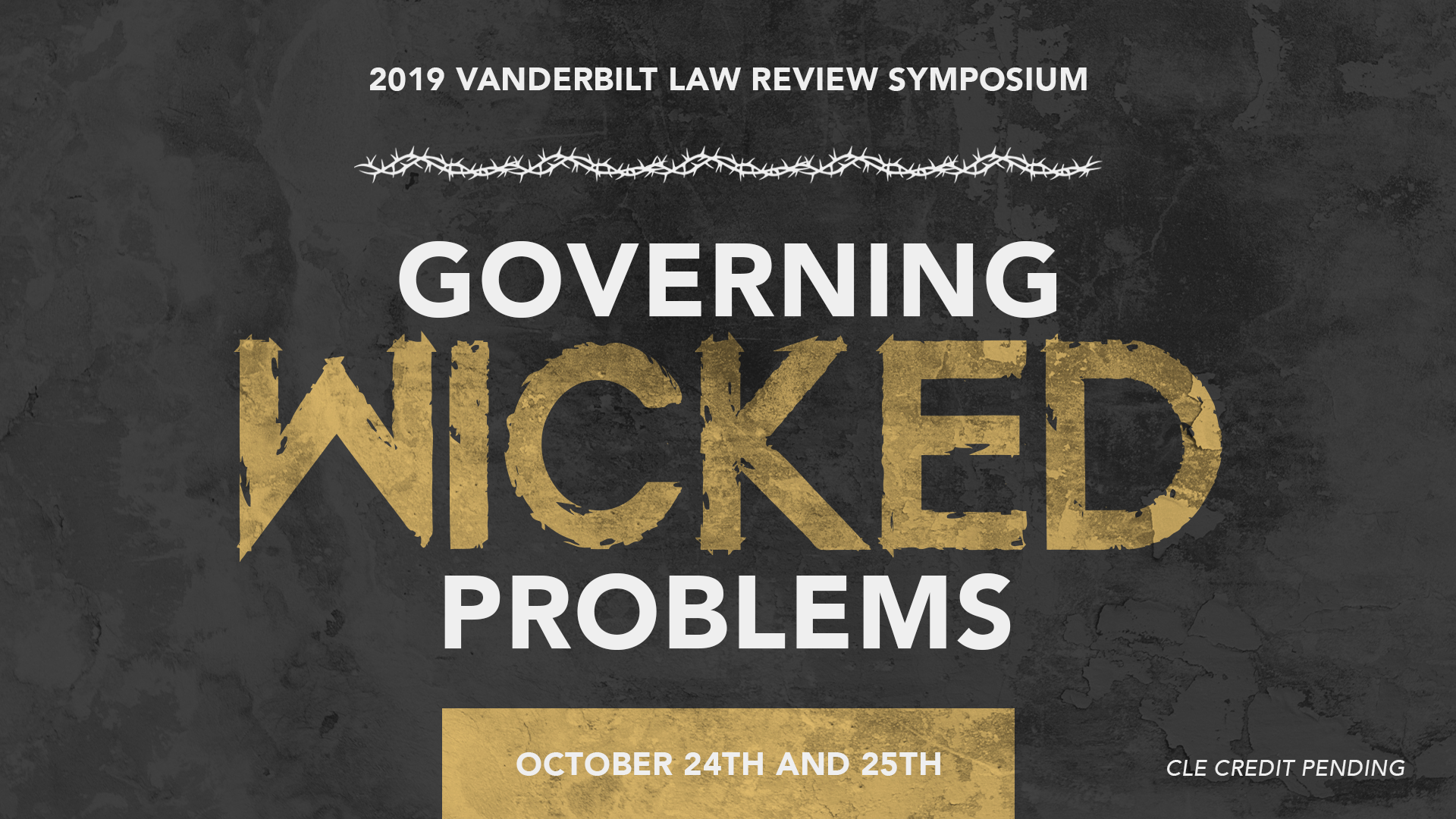
The Vanderbilt Law Review held a symposium entitled “Governing Wicked Problems,” at Vanderbilt Law School on October 24–25, 2019. You can read the resulting scholarship in the Symposium issue here. The event was co-hosted by Professors J.B. Ruhl and James Salzman, who described the theme in this way:
“Governing Wicked Problems” explores whether emerging theoretical and empirical work centered around concepts of resilience, adaptive governance, and complex adaptive systems offers a generalizable approach that could improve upon the conventional “war on” strategy often taken when government wrestles with intractable policy challenges—i.e., wicked problems.
Wicked problems are the opposite of hard but ordinary problems, which public and private governance institutions can solve in a finite time period by applying standard techniques. Not only do conventional governance processes fail to tackle wicked problems, they may exacerbate situations by generating undesirable consequences. The symposium was organized to step back and ask whether there are general governance design principles that could prove useful across the category of wicked problems. More fundamentally, we pushed back on the conception that each wicked problem is sui generis as a governance challenge.
We invited a small number of thought leaders from a variety of fields to write about both substantive wicked problems (such as climate change and gentrification) and governance strategies to address such problems (such as resilience and adaptive governance). The focus of the symposium was neither to run through each problem and its specific challenges nor to consider governance strategies in the abstract. Instead, it married the specific and abstract, asking what generalizable insights have been learned about how to design public and private governance regimes to manage wicked problems.
The speakers for the Symposium were:
- Barbara Cosens (University of Idaho College of Law)
- Robin Craig (The University of Utah College of Law)
- Richard Lazarus (Harvard Law School)
- Gary Marchant (Sandra Day O’Connor College of Law)
- Alex Camacho (UC Irvine School of Law)
- Scott Campbell (University of Michigan, Taubman College of Architecture and Urban Planning)
- Moira Zellner (University of Illinois at Chicago, College of Urban Planning and Public Affairs)
- Jonathan Gilligan (Vanderbilt University, Earth & Environmental Sciences)
- Craig Philip (Vanderbilt University, Research Professor of Civil and Environmental Engineering)
- Chris Serkin (Vanderbilt University Law School)
- Mike Vandenbergh (Vanderbilt University Law School)
Symposium Schedule:
Thursday, October 24
12:00-1:00 Lunch Presentation – Richard Lazarus (Harvard): Mass. V. EPA—The Most Important Environmental Case Ever
3:30-5:00pm Keynote – Richard Lazarus (Harvard): Super-Wicked Problems and Climate Change—Ten Years Later
Friday, October 25
8:00-8:45 Breakfast – North Lobby, Second Floor
8:45-8:50 Welcome – Vanderbilt Law Review Representative
8:50-8:55 Welcome – Dean
8:55-9:15 Symposium Overview and Introduction – Jim Salzman (UCLA) and J.B. Ruhl (Vanderbilt)
9:15-10:30 Panel 1: Emerging Theories
- Robin Craig (Utah): Resilience Thinking
- Barb Cosens (Idaho): Adaptive Governance
10:30-10:45 Break – North Lobby, Second Floor
10:45-12:00 Panel 2: Technology
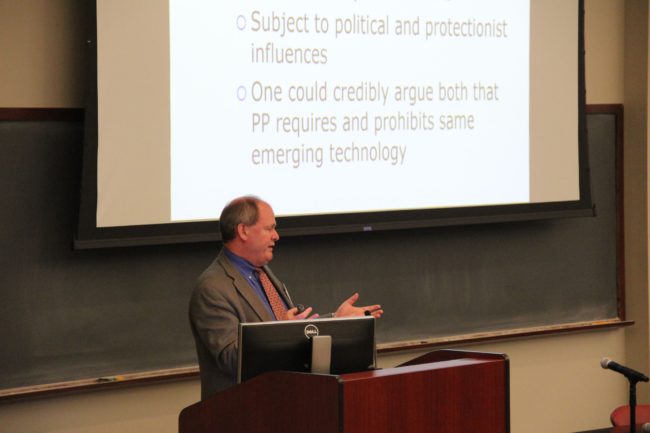
- Gary Marchant (Arizona State): Evolving Technologies
- Yesha Yadav (Vanderbilt): Financial System Technologies
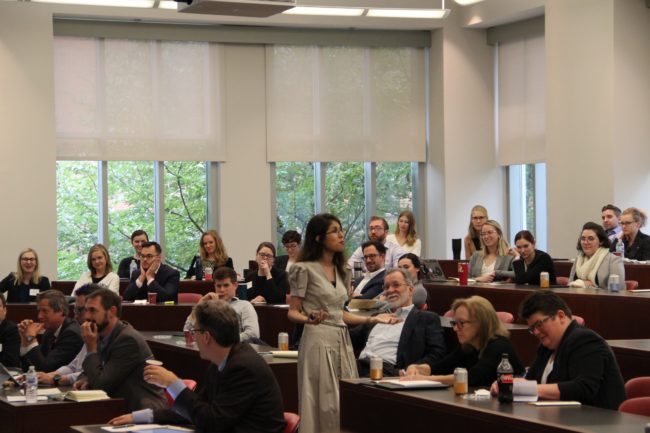
12:00-1:15 Lunch – North Lobby, Second Floor
1:30-2:45 Panel 3: The Environment
- Alex Camacho (UC – Irvine): The Biodiversity Crisis
- Michael Vandenbergh (Vanderbilt) and Jonathan Gilligan (Vanderbilt)
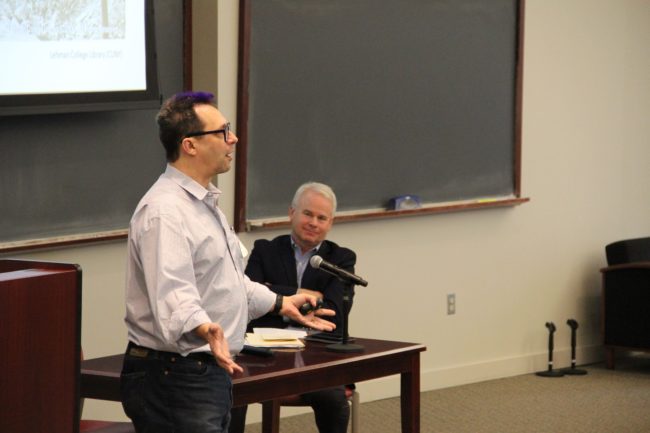
2:45-3:00 Break – North Lobby, Second Floor
3:00-4:30 Panel 4: The City
- Chris Serkin (Vanderbilt): Zoning and the Affordability Crisis
- Moira Zellner (UI – Chicago) and Scott Campbell (Michigan): Planning as a Complex Adaptive System
- Craig Philip (Vanderbilt): Traffic and Transit
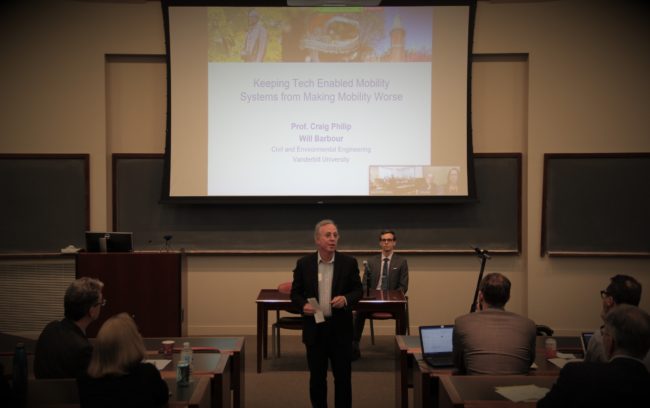
4:30-4:45 Conclusion – J.B. Ruhl (Vanderbilt)
5:00-6:00 Reception – North Lobby, Second Floor